Landscape Ecology & Ecosystem Science Lab
Center for Global Change and Earth Observations | Department of Geography
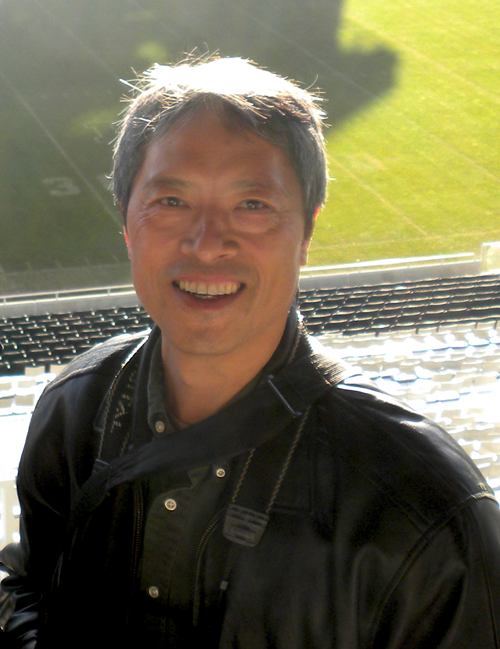
Jiquan Chen, PhD
Professor
E-Mail: jqchen@msu.edu | Phone: 517-884-1884
A native of Shanxi in Northern China, Dr. Chen received his undergraduate education in grassland ecology (Inner Mongolia University), MS in forest ecology (Chinese Academy of Sciences), and PhD in ecosystem Analysis (University of Washington). His postdoc training was in the stream ecology and ecosystem management. He was a Bullard Fellow at Harvard University (1999-2000). He was on the faculty at Michigan Tech University (1994-2001) and University of Toledo (2001-2014).
His research and academic instruction programs are on ecosystem processes and their interactive feedbacks to the biophysical and human activities, including community ecology to 3-D canopy structure, forest fragmentation, edge effects, riparian zone, conservation biology, landscape ecology, and micrometeorology. His current research lies in the coupled effects of global climate change and human activities on terrestrial ecosystems, global change ecology, bioenergy, and carbon/water fluxes. He will be teaching special topics on coupled human and natural systems, environmental instrumentations, image processing and GIS, and global change science.
He is a fellow of the American Association for the Advancement of Science (AAAS, 2011) and a fellow of Ecological Society of America (ESA, 2014). Dr. Chen is also the Editor-in-Chief for two book series: 1) Landscape Ecology (Springer); and 2) Ecosystem Science and Application –ESA (HEP & De Gruyter). He is the founder and chief scientist of the US-China Carbon Consortium (USCCC) . He enjoys Thai Chi practice and Buddha Meditation. He is also a member of the Ecology, Evolutionary Biology, and Behavior (EEBB) Graduate Program and the Environmental Science & Policy Program (ESPP).
Current Members
![]()
Michael Abraha, PhD
Research Associate
E-Mail: abraha@msu.edu | Phone: 249-290-9766
My research interest lies in measuring and modeling the physical processes involved in the soil-plant-atmosphere continuum, with a special focus on energy and mass exchange measurement between surfaces (bare soil, vegetated, wet-lands and/or water) and the atmosphere using micrometeorological methods. I am interested in investigating energy balance closure using eddy covariance measured fluxes; and also the influence of land-use and climate changes on heat, carbon dioxide, water vapor and other trace gas fluxes.
My previous studies concentrated on measurement and modeling of crop growth and development, soil water balance, solar radiation and its interception by shrubs, and evapotranspiration from sparse trees. I was also involved in investigating inexpensive means of estimating sensible heat flux from high frequency air temperature measurements.
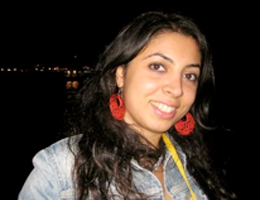
Sara Demir, PhD Student
Visiting Scholar
E-Mail: sarademir@gmail.com
I have eight years of experience as a landscape architect and specialization in urban communities, gardens, ecotourism, greenways, National Parks, landscape character analysis and assessments, historical landscape assessments, GIS, multi-criteria decision making, and analytical hierarchy processes. My academic experience, research interests, and goals have helped me succeed in Landscape Planning. Currently, I am a PhD candidate and working as a research assistant at Karadeniz Technical University (KTU, Turkey). I have joined projects to provide protection and awareness in nature for a new generation of stewardship. These projects have guided me in my research that I have done for my master and PhD thesis.
My new interest as I work for my PhD is analyzing and assessing each landscape characteristic in a watershed from the National Park of Trabzon City, Turkey with a focus on determining all traces of human impact on the landscape over a time period. Through this analysis and assessment, “Landscape Character Analysis and Historical Landscape Assessment Mapping” will be created. This analysis and assessment will reveal all landscape characteristics and will classify and identify the fragmentation of the landscape based on landscape ecology. By utilizing this mapping, the best land use, decision-making, and protection measures for each landscape characteristic will be determined.

Yi Fan (Angela)
PhD Student
E-Mail: fanyi2@msu.edu | Phone: 419-215-6803
I'm involved in an integrated research on the Life Cycle Sustainability Assessment of photovoltaic technology and its production. The study is divided into Environmental Life Cycle Assessment, Life Cycle Costing, Social Life Cycle Assessment, and comprehensive structural equation modeling (SEM). To accomplish the assessment, structural equation modeling will be intensive used in the research. My goal is to explore innovative and efficient PV pipelines to meet the growing and changing demands for efficient PV technology and production, renewable energy, and ecosystem services for society and to examine how existing trade-offs differ from other energy revenues.

Ranjeet John, PhD
Research Associate
E-Mail: ranjeetj@msu.edu | Phone: 517-214-6675
Ranjeet's research interests focus on the applications of Remote Sensing and Geospatial technologies to study biophysical attributes that include carbon, water & energy fluxes at varying scales in context of ecosystem ecology, land cover/land use, and climate change. His current position in the LEES lab requires him to synthesize existing meteorological and medium to coarse resolution satellite derived-data (for e.g., drought indices, extreme climate anomalies & non-parametric trend analysis). In addition, his research also involves scaling up from in situ observations from various eddy covariance flux towers and standard ground truth methods to a regional scale in context of rapid climatic and socio-economic changes (in the Mongolian Plateau and elsewhere).
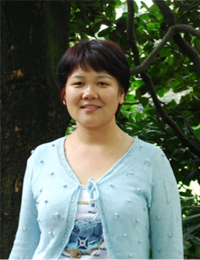
Dr. Yun Liu
Visiting Scholar
Email: yunliu@msu.edu | Phone: 517-755-9366
Dr. Liu 's primary research and teaching interests are in the general fields of dynamic simulation of forest resources. Her research activities include: modeling and forecasting stand growth dynamics and stand succession law and environmental change characteristic by canopy gap disturbance at the scale of standard ground investigation. After her PhD research, her focus shifted to landscape ecology and sustainable land use using the "3S" technology. Currently, her research activities include: land use change, land-use driving factor analysis, and land pattern characteristics and ecosystem service function.
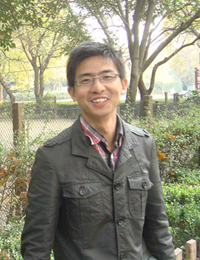
Zutao Ouyang
PhD Student
E-Mail: yangzuta@msu.edu | Phone: 567-225-7112
My former research focused on mapping and investigating invasive plants in wetlands (such as Spartina alterniflorain east coast of China by remote sensing techniques and GIS. Currently, my research interest has moved on to carbon fluxes of terrestrial ecosystems, as I think carbon related problems such as greenhouse gases, carbon storage and cycling , and so on are core issues of global climate change. I love science, but I also like many other things, like cycling, swimming, playing ping-pong and reading.
![]()
Hogeun Park
PhD Student
E-Mail: parkhoge@msu.edu
Hogeun is currently developing a synthesis study reviewing urbanization and coupled human and nature systems (CHNS). Before joining LEES, he studied social capital and network contingency on a local development project. During his master's degree, he successfully participated in international research workshops as a member of the Asian Program for Incubation of Environmental Leaders (APIEL) and did an internship in the social science division at the International Rice Research Institute (IRRI). His first professional career was a Cooperation Agent at the Korea International Cooperation Agency (KOICA) from 2008 — 2010 where he worked in both Pelileo and Saquisili City Hall in Ecuador as a GIS specialist.
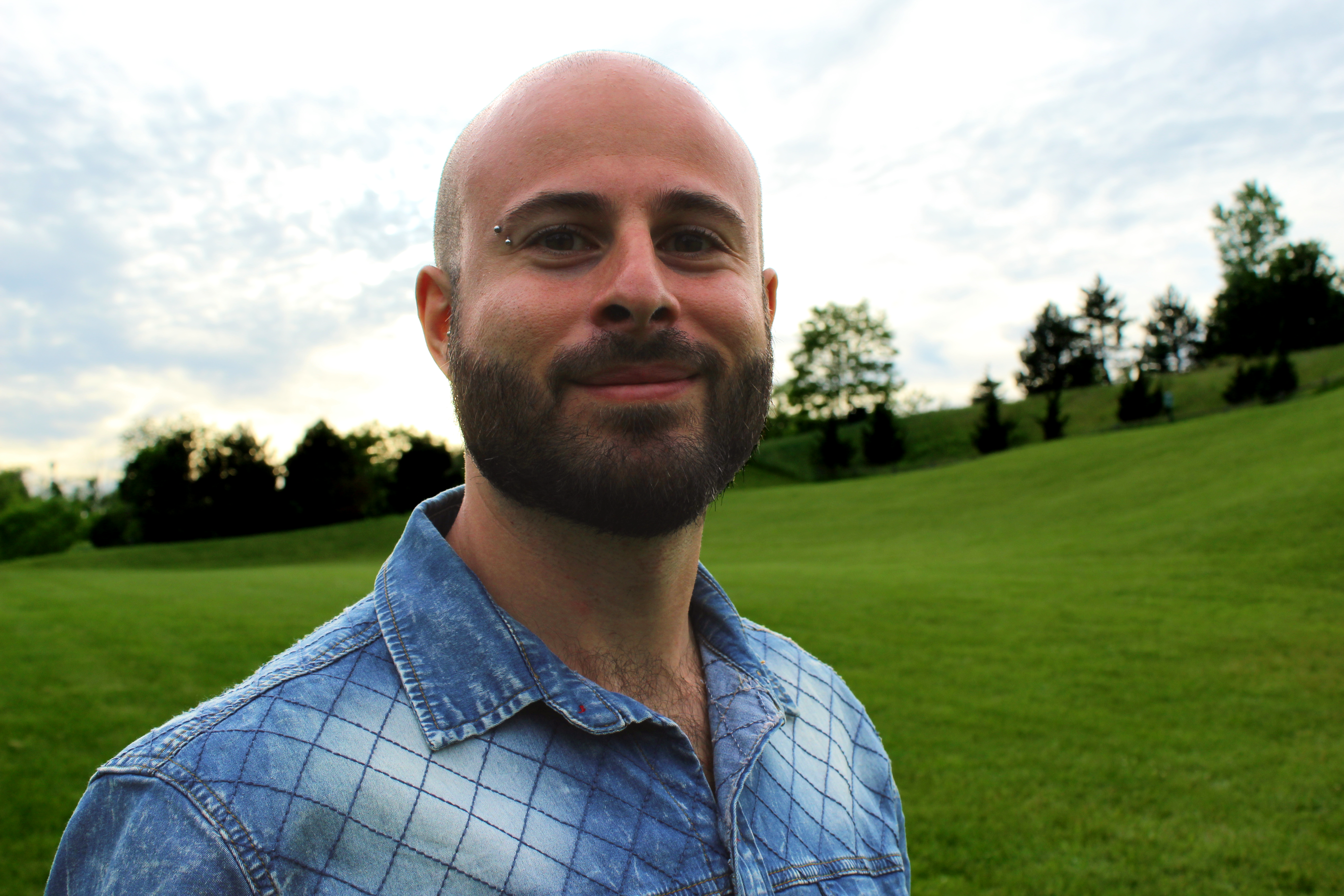
Pietro Sciusco
Master's Student
E-Mail: sciuscop@msu.edu
Pietro Sciusco is a Master Student candidate at the Department of Agricultural and Environmental Sciences (DISAAT) at the University of Bari (Supervisor: Prof. Raffaele Lafortezza). He is investigating how to use satellite data, such as ESA-Sentinel-1 and -2, to estimate ecological processes in agricultural and forest landscapes. He is currently doing an internship in Planetek Italia, an Italian company in the field of Earth Observation technologies, where he is studying the data fusion of radar, optical and hyperspectral data. As an example, he is using Sentinel Application Platform ESA (SNAP) as a tool for Sentinel data processing in order to estimate forest biomass. In addition, he is gaining experience on ERDAS Imagine 2016 and PolSARpro for data processing. Besides studying and doing research, Pietro has different passions, including insect collection, gardening, do-it-yourself, playing the drums, skating, technologies.
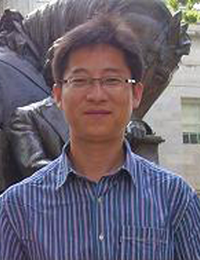
Changliang Shao, PhD
Research Associate
E-Mail: clshao@msu.edu | Phone: 517-974-1750
My research interests aimed at understanding human-environment interactions through a focus on land-use and land-cover changes through using eddy covariance technique in grassland ecosystems: from observation to data analysis of carbon, water and energy fluxes. I have been the one maintaining two mobile flux towers in Inner Mongolia for 3 years and opened the eddy covariance data in public via internet. Recent work has used two mobile eddy flux towers to study different disturbance ecosystems under the same environment, which is valuable for modeling precision, and contribute us to understand the underlying effect mechanism through different management types. I have served the NASA LCLUC Science Team, the NSFC and the Foundation of Chinese Academy of Sciences. In 2009 I was elected fellow of the US-China Carbon Consortium (USCCC).
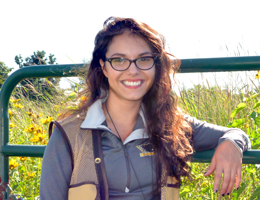
Gabriela Shirkey
Lab ManagerE-Mail: geshirkey@gmail.com
Gabriela joined the LEES lab in January 2015 as a Research Technologist with interests in the Great Lakes Region and the relationship between conservation strategies and local communities. She currently serves as the lab editor, web developer, and as a research assistant.
Prior to LEES, she worked on two human-environment research projects within the Department of Social Sciences and with EEPP students at Michigan Technological University investigating the role social influence plays in land use decision making, conservation practices, and geothermal energy. Apart from LEES, Gabriela works as a marketing and communications specialist for international programming and Michigan economic development organizations.

Yahn-Jauh Su
PhD Student
E-Mail: suyahnja@msu.edu | Phone: 419-508-0040
My research interest focuses on the relationship between the metabolism of ecosystems and the environmental regimes and how the relationship responds to human land use and climate change.
I would like to explore the relationship from both ecosystem and community perspectives.The former concentrates on the intrinsic mechanisms within a community, such as how biodiversity, foodweb structure, community dynamics and the species interactions adapt to environmental regimes and maintain the stability of the system while latter focuses on the energy and material transfer and flux within and between ecosystems and their adjacent environment. My research is currently funded by the Great Lakes Bioenergy Research Center (GLBRC) and focus on how crop types and land-use history impact the metabolism of bioenergy agricultural ecosystems. We monitor the carbon sequestration by eddy covariance (EC) techniques and some budget-related ecosystem functions, including aboveground net primary production (ANPP), belowground net primary production (BNPP), photosynthesis rate and soil respiration in corn and switchgrass farms which converted from conservation reserve program (CRP) and conventional agricultural zones near Kellogg Biological Station (KBS), Michigan.

Dr. Yuhui Wang
Visiting Scholar
E-Mail: yuhui6@msu.edu
Dr. Wang's research interests include: understanding the mechanisms and dynamics of carbon, water, and heat flux in semi-arid and arid grassland ecosystems by using eddy covariance data and a LI-6400 photosynthesis system in Inner Mongolia. The long-term field observation has been made in a typical grassland dominated by Stipa krylovii and a desert steppe dominated by Stipa Klemenzii; 2) exploring the effect of human activities to structure and the function of grassland ecosystems in Inner Mongolia, the Songnen Plain, and the Tibetan plateau based on long-term field observation data and modeling; 3) evaluating the potential changes of grassland ecosystem function (NPP, soil organic carbon) under different scenarios of climatic change and elevated atmospheric CO2 based on terrestrial ecosystem modeling and manipulative experiments.
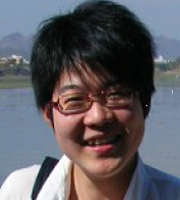
Ruqun Wu (Susie)
PhD Student
E-Mail: wuruqun@msu.edu | Phone: 517-974-1750
I joined the team in fall 2013 to pursue my Ph.D. study in the research area of life cycle sustainability assessment. I have bachelor degree in Agronomy and Master degrees in Environment and Energy Studies. During my Master study, I grew interested in the Life Cycle Assessment (LCA). After graduation, I began working on LCA related topics in China (e.g. eco-design, carbon footprint) and I found that the popularization of partial LCA enables many companies to use “halo effects” which jeopardizes the company as they may “green wash” by claiming a product system as “green ” simply because it has a superior sustainability than something else. Thus, a holistic way of assessing product systems' overall sustainability is needed in order to help the industry better understand their current performance and improve policy.
The topic which Professor JiQuan Chen and Doctor Defne Apul are working on is very interesting to me. They are conducting life cycle sustainability analysis of proposed photovoltaic technologies and comparing them to different alternatives.
I am excited to begin my work here and study this most interesting, and interdisciplinary, topic.
Current Collaborators
| Raffaele Lafortezza | University of Bari |
| Dan Brown | University of Michigan |
| Yaoqi Zhang | Auburn University |
| Amarjargal Amartuvshin | National University of Humanity |
| Ochirbat Batkhishig | Mongolian Academy of Sciences |
| Peilei Fan | Michigan State University |
| Ge Sun | Southern Global Change Program, USDA Forest Service |
| Steve McNulty | Southern Global Change Program, USDA Forest Service |
LEES Alumni & Associates
| Karrin Alstad | California |
| Weikai Bao | Chengdu Institute of Biology, CAS |
| Runcheng Bi | Shangxi Normal University |
| Mary Bresee | USDA Forest Service |
| Kim Brosofske | Michigan Tech University |
| Xiaoli Cheng | Chinese Academy of Sciences |
| Housen Chu | University of California-Berkley |
| Amy Concilio | University of California - SC |
| Mike Deal | Ohio EPA (Columbus) |
| Jared DeForest | Ohio University |
| Elia Mario | University of Bari, Itlay |
| Eugenie Euskirchen | University of Alaska |
| Yu Gao | Fudan University |
| Chongfeng Gong | Sun Yat-Sen University |
| Haiqiang Guo | Fudan University |
| Juanjuan Han | Iceme, NUIST |
| Anna Kvashinina | Russia |
| Lyn Gerdes | Minnesota DNR |
| Beyza Sat Gungor | Ozyegin University |
| Malanding Jaiteh | Columbia University |
| Jacob LaCroix | US Fishery and Wildlife (AK) |
| Jim LeMoine | University of Michigan |
| Haitao Li | Institute of Geographic Sciences and Natural Resources Research, CAS |
| Qinglin Li | Timberline Natural Resource Group Ltd. |
| Nan Lu | Chinese Academy of Sciences |
| Siyan Ma | University of California - Berkley |
| Asko, Noormets | NC State University |
| Robert Phillips | UT |
| John Rademacher | USDA Forest Service |
| Mark Rudnicki | University of Connecticut |
| Soung Ryu | Clemson University |
| Sari Saunders | BC Forest Service |
| Jessica Schafer | TX |
| Changlaing Shao | Institute of Botany, CAS |
| Janet Silbernagel | University of Wisconsin |
| Bo Song | Clemson University |
| Lisa (Delp) Taylor | |
| Jennifer Teeple | Michigan State University |
| Gwen Tenney | |
| Xinli Wang | Colorado State University |
| Xu Wang | Chinese Academy of Agricultural Sciences (CAAS) |
| Surachit Wanggsenthorn | |
| Radley Watkins | Wisconsin |
| Burkhard Wilske | Canada |
| Shiqiang Wan | Henan University |
| Chuankuan Wang | Center for Ecological Research of Northeast Forestry University |
| Wei Shen | Northeast Forestry University |
| Jing Xie | Beijing Forestry University |
| Jianye Xu | NA |
| Ming Xu | Rutgers University and Chinese Academy of Sciences |
| Xuefeng Yu | Institute of Earth Environment, Chinese Academy of Sciences |
| Terenzio Zenone | Netherland |
| Feng Zhang, Ph.D. | IBCAS |
| Wenli Zhang | Three Gorges University |
| Daolan Zheng | University of New Hampshire |
| Rui Zhou | California |









